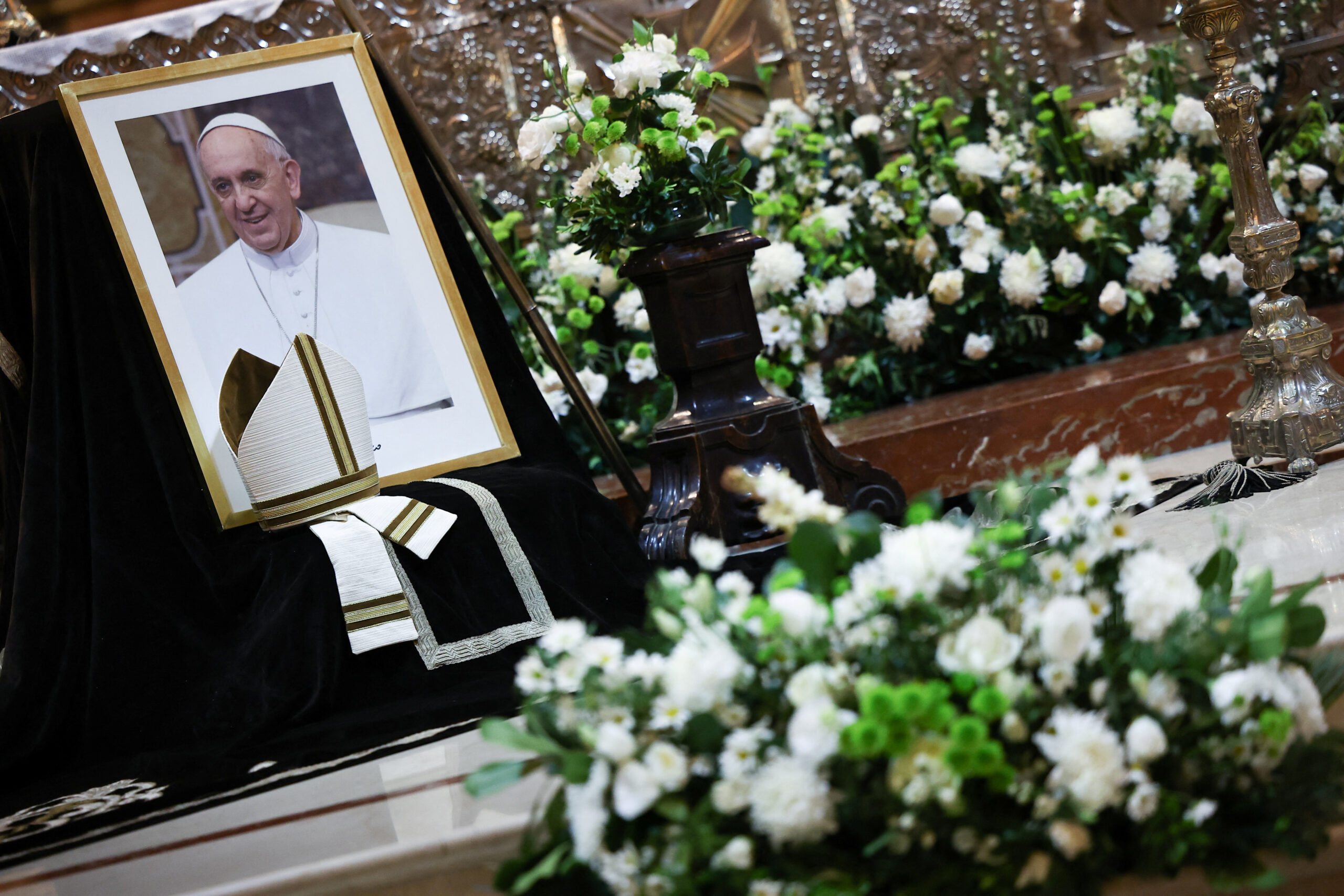Pope Francis, the first pontiff from Latin America and a transformative—if polarizing—figure in modern Catholic history, passed away early Monday morning at the age of 88. The Vatican confirmed the pope died peacefully after a prolonged illness. His death on Easter Monday, a day symbolizing resurrection and hope for Christians, carries poignant significance for the faithful.
President Donald Trump and Vice President J.D. Vance issued statements praising the pope’s spiritual leadership. Vance, who had visited the Vatican just days prior, recalled Pope Francis’s homily during the early days of the COVID pandemic as particularly moving.
To reflect on Pope Francis’s complex legacy, Chicago’s Morning Answer welcomed Mary FioRito, fellow at the Ethics and Public Policy Center and longtime Catholic commentator. FioRito offered a nuanced view of the late pontiff’s papacy—one marked by a deep pastoral concern for the poor and marginalized, but also one that frequently stirred confusion and division among clergy and laypeople alike.
A Compassionate Pastor with a Complicated Legacy
FioRito emphasized the symbolism of Pope Francis passing on Easter Monday.
“He worked until the end, shepherding the people he loved,” she said. “Many Catholics saw him as a grandfather figure.”
Francis, born Jorge Mario Bergoglio in Buenos Aires, Argentina, brought a pastoral sensibility shaped by his South American heritage. His focus on poverty, immigration, and inclusion drew praise from progressive Catholics and non-Catholics alike. However, his tendency to speak off-the-cuff and his sometimes ambiguous language sparked debate and criticism, particularly among conservatives.
“There was overall consistency in his message,” FioRito said, “but his lack of precision in speech often led to confusion.”
Diplomatic Norms and Political Intrusions
In recent months, Pope Francis drew headlines for weighing in on U.S. immigration policy—specifically opposing the Trump administration’s proposal for mass deportations. Reports indicated the pope asked Vice President Vance to deliver a message to Washington urging compassion for migrants.
FioRito acknowledged the pope’s sympathy for struggling Latin American migrants but called the public rebuke of U.S. officials unusual and diplomatically awkward.
“Scripture tells us to handle disagreements privately before speaking publicly,” she noted, adding that some American bishops may have influenced the pope’s comments for political leverage ahead of the 2024 election.
The Catholic Doctrine Divide
The conversation also turned to the doctrinal tensions that defined much of Pope Francis’s papacy. Despite media portrayals, FioRito said, Francis remained staunchly pro-life and traditional in his views on marriage.
“He once likened abortion to hiring a hitman to solve a problem,” she said, citing a 2018 statement that stunned secular audiences. “He also called redefining marriage an ‘anthropological regression.’”
Still, Francis’s approach to LGBTQ+ issues was more pastoral than polemical. His now-famous quote—“Todos, todos, todos” (“Everyone, everyone, everyone”)—was meant to emphasize universal welcome, but critics said it lacked needed clarity on the Church’s moral teachings.
“He wanted to extend mercy without compromising doctrine,” FioRito explained. “But often he failed to say the second part—that we are welcomed on Christ’s terms, not ours.”
What Happens Next
With Pope Francis’s funeral expected later this week—likely Friday or Saturday—the Church will soon enter a conclave to elect the next pope. Given Francis’s global appointments, cardinals will arrive from far-reaching corners of the world, many of whom have never met.
Chicago’s own Cardinal Blase Cupich, a prominent Francis ally, is expected to play a significant role in the upcoming papal election. FioRito noted Cupich’s considerable influence in both U.S. and global Church affairs.
As for potential successors, FioRito highlighted Hungarian Cardinal Péter Erdő as a possible frontrunner—a figure known for his orthodoxy and pastoral zeal, reminiscent of Pope John Paul II.
“If Erdő is chosen, it could signal a return to a more evangelical and enthusiastic Church,” she said.
The Road Ahead
While Pope Francis leaves behind a deeply divided Church, he also leaves a legacy of compassion, global outreach, and emphasis on mercy. For many Catholics, his death is a moment of mourning, reflection, and hopeful anticipation for what comes next.
The conclave to elect the 267th pope is expected to begin within 15 to 20 days. Until then, Catholics around the world will remember a pope who tried to bridge the gap between timeless doctrine and a rapidly changing world.
Mary FioRito’s final reflection encapsulated the mood among many faithful: “He wanted the Church to be a field hospital, reaching people where they are. But as we look ahead, we need a leader who can do that without losing sight of where we’re supposed to go.”





